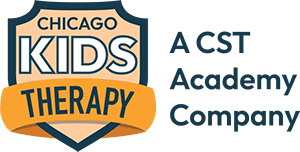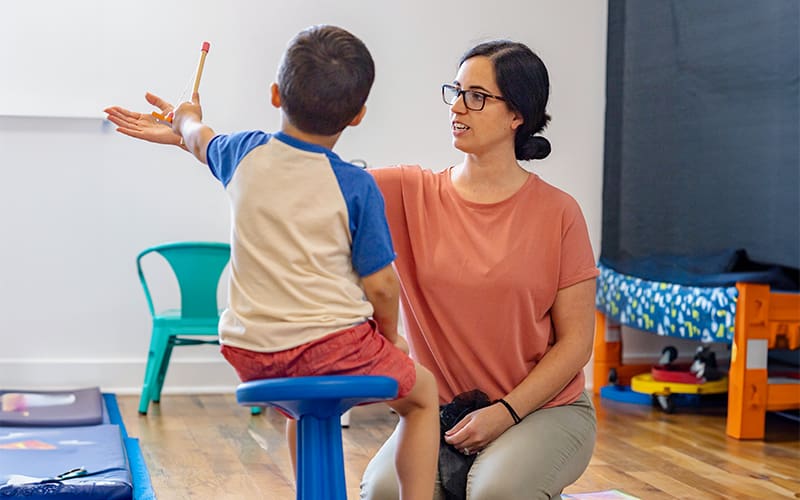Pediatric physical therapists provide essential care in a variety of medical, educational, and home-based settings, ensuring children receive treatment tailored to their unique needs. Depending on the child’s condition and therapy goals, services may be delivered in hospitals, outpatient clinics, schools, homes, or even through teletherapy.
Common Pediatric Physical Therapy Settings
Hospitals
Pediatric physical therapy is often integrated into a child’s inpatient hospital stay to support recovery, mobility, and overall development. Hospital-based therapy may be necessary for:
- Premature newborns and at-risk infants in neonatal intensive care units (NICUs)
- Infants with congenital heart disease or other medical conditions
- Children recovering from acute illnesses, brain trauma, surgeries, or orthopedic injuries
- Rehabilitation following neurological conditions such as spinal cord injuries or meningitis
Therapy sessions may take place in the child’s hospital room, therapy gym, or hallways to improve mobility and encourage movement as part of their recovery.
Outpatient Clinics & Private Practices
Many children attend therapy in outpatient clinics or private practices, where they receive specialized one-on-one treatment in a structured environment. These clinics often include therapy gyms, adaptive equipment, and play-based activities to support gross motor skill development, balance, and strength training. Therapy sessions typically last about an hour and may be scheduled weekly or multiple times per week, depending on the child’s needs.
Schools
Some schools provide on-site physical therapy for children who need support throughout the school day. Therapists work within classroom settings, gymnasiums, and outdoor areas to ensure children can:
- Navigate hallways, playgrounds, and stairs safely
- Improve balance, coordination, and endurance for daily school activities
- Participate in physical education and recreational play
- Access adaptive equipment if needed
School-based therapists may travel between multiple schools to provide services, collaborating with teachers and other school staff to help children succeed in the academic environment.
In-Home Pediatric Physical Therapy
For children who require therapy in a familiar environment, pediatric physical therapists can provide in-home evaluations and treatment sessions. In-home therapy is especially beneficial for infants, children with mobility limitations, or those who need personalized support using their own toys and equipment.
Teletherapy (Online Pediatric Physical Therapy)
Teletherapy allows pediatric physical therapists to guide children and parents through exercises, positioning, and activities via video conferencing. This approach is ideal for families who:
- Need flexible scheduling
- Want to be actively involved in their child’s therapy
- Live in remote areas without easy access to in-person therapy
Conditions Treated with Pediatric Physical Therapy
Pediatric physical therapists evaluate, diagnose, and treat a wide range of conditions affecting movement, coordination, and physical development. Some children may require short-term therapy for minor delays, while others may need long-term intervention for complex medical conditions.
Orthopedic Diagnoses
- Hip Dysplasia
- Arthrogryposis (congenital joint contractures)
- Scoliosis
Autoimmune Disorders
- Juvenile Arthritis
Developmental Disorders
- Autism Spectrum Disorder
- Cerebral Palsy
- Fragile X Syndrome
Postural & Positional Deviations
- Torticollis
- Idiopathic Toe-Walking
- Plagiocephaly, Brachycephaly, and Scaphocephaly (head shape differences)
Genetic Disorders
- Spinal Muscular Atrophy
- Down Syndrome
- Muscular Dystrophies
Neurological Diagnoses
- Spina Bifida
- Brachial Plexus Injury
- Meningitis
- Seizure Disorders
- Spinal Cord Injuries
Additional Conditions
- Gait Abnormalities
- Hypotonia (low muscle tone) and Hypertonia (high muscle tone)
- Developmental Coordination Disorder
- Traumatic Brain Injury
- Prematurity-Related Delays
- Other Birth Defects or Complications
Equipment Recommendations and Training
Some children may require assistive devices to improve mobility and independence. Pediatric physical therapists provide training on:
- Prosthetics and orthotics for children with limb differences or musculoskeletal conditions
- Adaptive equipment, including walkers, wheelchairs, and standing frames
Getting Started with Pediatric Physical Therapy
If your child has difficulty with balance, coordination, strength, or motor development, a pediatric physical therapy evaluation can help determine the best course of treatment. Contact Chicago Kids Therapy today to learn more about our services and how we can help your child gain confidence and mobility in any environment.


